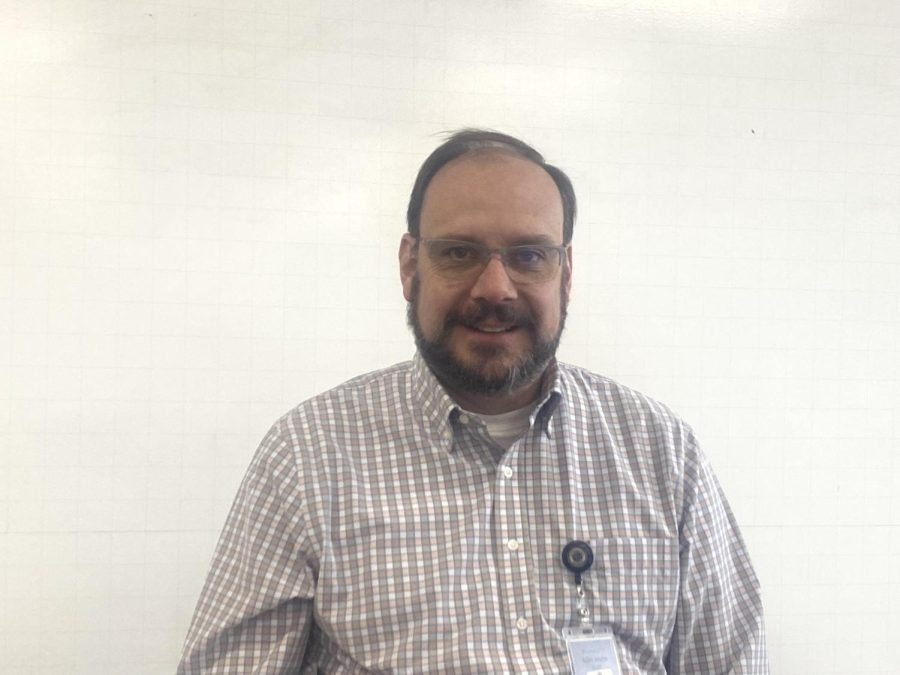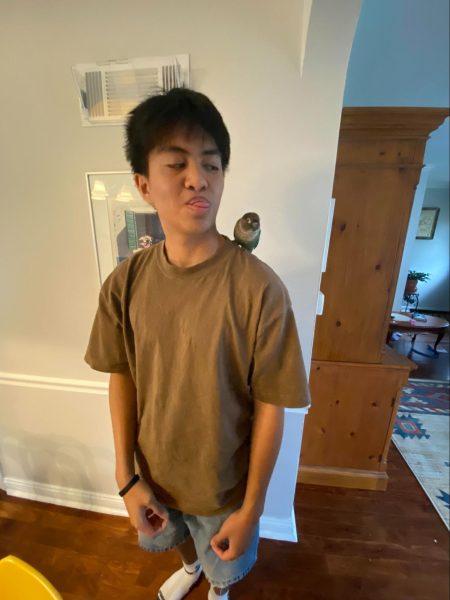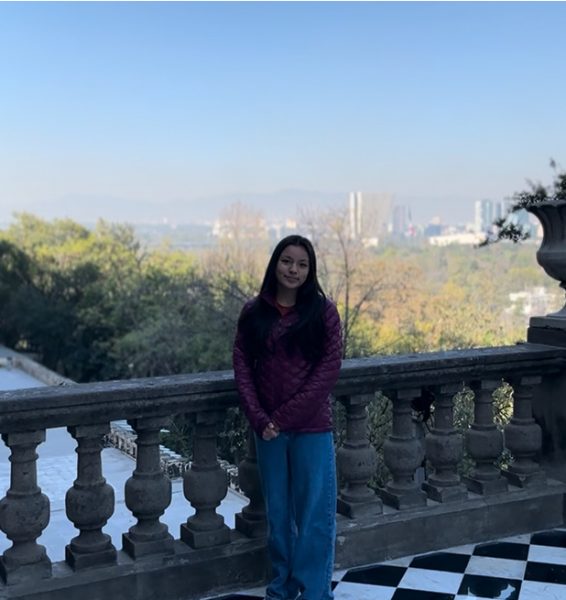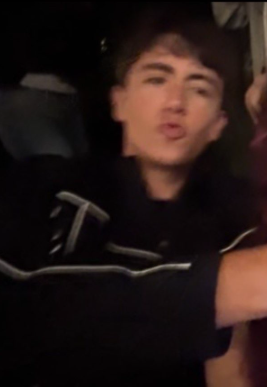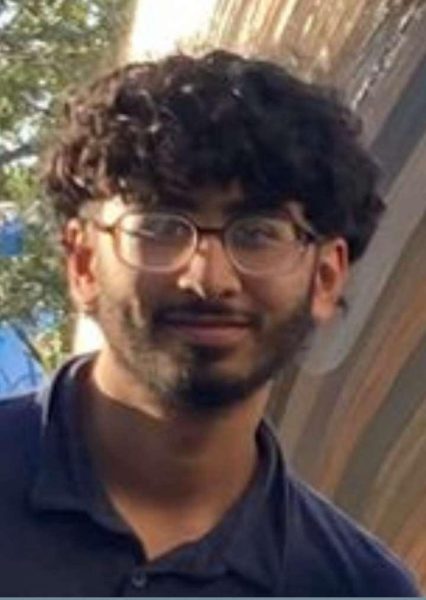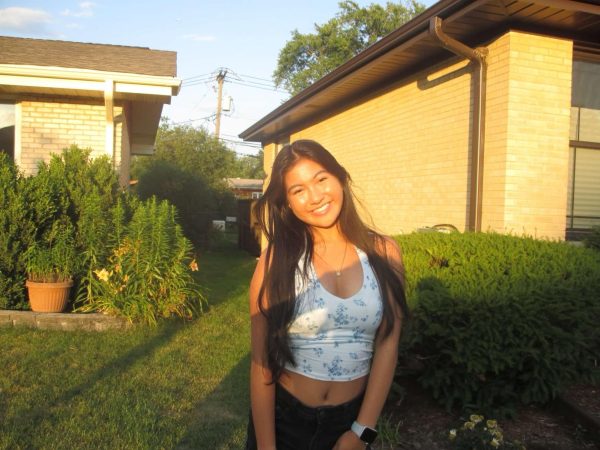Michael Beeftink, Science teacher
Headshot of Mr. Beeftink.
What is your occupation? My occupation is science teacher, particularly environmental science and biology.
How long have you been working here? Can I make up a lie? I have to tell the truth. This is year 31. Wow.
Why stay at District 219 for 31 years? Couple of things. I knew the district because I grew up in the area and I knew it to be a really good district. My dad had worked for the district for many years as well. My dad’s a retired teacher from Niles West. We got to work together for two years.
How has the school changed since you first started working here? So much smaller as a school when I started here. I don’t know how many fewer students, but the Fieldhouse didn’t exist. The P.E. offices didn’t exist. The new swimming pool didn’t exist. That whole wing in front of the building didn’t exist. Obviously, the new addition didn’t exist; that’s not open yet. So there were actually tennis courts where the P.E. teachers have their office. There were really four major wings – A, B, C and D. And the middle hall was science. Only 1000, 2000, 1100, 1200, 13, 14 and 15 wings existed.
How did you bring AP Environmental Science to Niles North? Ms. Tolley helped me create APES and Ms. Traszkus actually started teaching APES with me probably two years in. Ms. Tolley and I both have a background in environmental science. I had a degree in biology with a minor in environmental science.
What job did you work at before becoming a science teacher? I was under contract with a group that worked for the EPA. I wasn’t a direct EPA employee, although I guess I did have EPA credentials. I was there for a year, and I worked with fisheries; we were part of a study. There was a treaty signed with Canada to study the Great Lakes, so I worked there and my boss at that job was a Canadian. I was on the U.S. side, and in the lab I was in we were doing background research on organisms to see if there were any indicators for pollution.
What is your best memory of working at the district? I mean, the faculty that I’ve gotten to know as well as the friends all the way back to when my dad was here. It was an honor to work with my dad for a couple years. He was at West and I was at North, but it was nice to be able to work with him. And then all the students that I run into- students out doing things in the world, or I’ll get emails saying “Hey, you know I didn’t go into environmental science or biology, but I think about you every once a while.” To me, it’s all the connections I have been able to make, and the people I’ve gotten to know have been really important.
What is your favorite experiment to run and why? Probably the water ones in APES because I worked at fisheries. Being out in the river and collecting data at the river has always been my thing. At the beginning of the year, APES goes to Harms Woods and collects data from the river, so it’s like you get your “Big Bang.” What’s cool is we’ve seen over the past 23 years the water quality has actually improved, and this year, we have seen organisms we have never seen before.
What is the craziest shenanigan you have done at North? I never got written up so I don’t know how much I want to give away. The principal at the time (who has since passed?) was the person who hired me when they did the original new addition, the 1000 hallway. They had a pit for the basement and different soil layers, so I thought when I was teaching soil it would be nice to go get some pictures. The pit had a little opening and I kind of skirted in and got some pictures and of course they didn’t like that I was beyond a hardhat area. I got called in to the principal’s office, but I did get some good pictures I still use. I won’t do that anymore, so readers, appreciate your administration of today. You’re safe.
What kinds of field trips do you go on and why? Probably my favorite is one that we didn’t get to run this year just because of time. We haven’t been there in about five years and the park has actually changed so much. I don’t know if we could anymore. But we’ve gone to Illinois Beach State Park and looked at the succession there. And the idea of the environmental light or the economic ecological idea of succession was actually figured out on Lake Michigan by a University of Chicago professor so the National Park and National Seashore is actually preserved in part because that’s where succession was figured out.
Is it UIUC or Illinois? Illinois, or U of I.
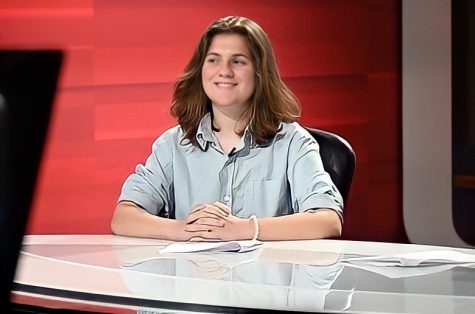
Olivia (Liv) Frey is the Editor-in-Chief and Opinion Editor of North Star News. Ever since joining NSN her freshman year, she has grown a deeper love...


